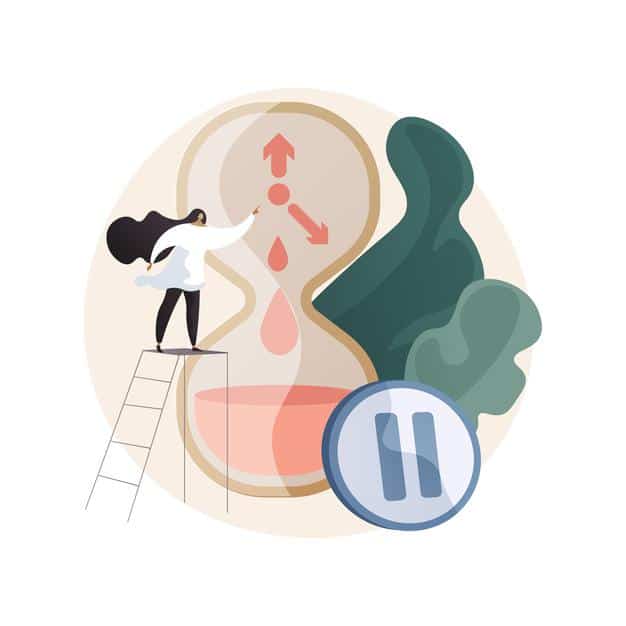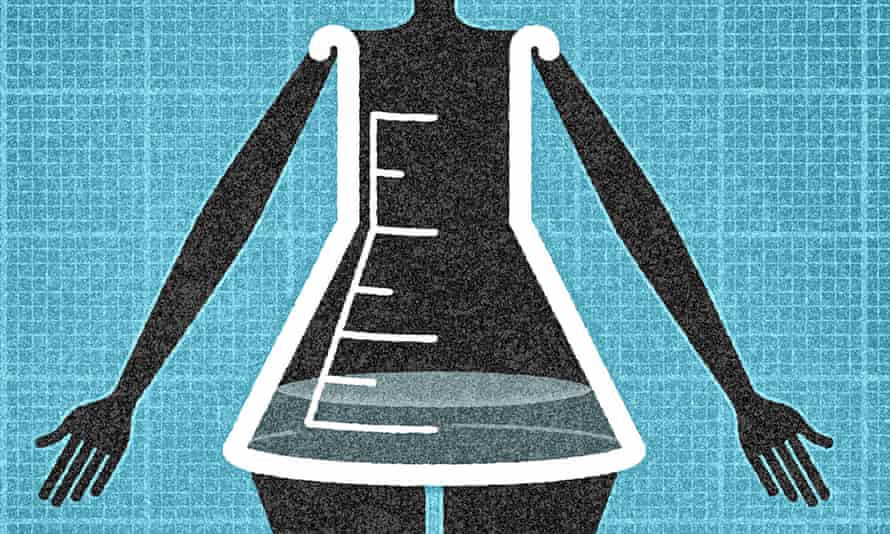We all have medical questions that we want answered – that’s why Dr. Amna Asif is here to provide us with her expert opinion! Every other week, she will be sharing her expert advice with us regarding a range of topics our followers are interested in learning more about. This week in Doc Talk, she talks about menopause. Read ahead to find out the symptoms, treatment and more:

What Is Menopause?
Menopause is a natural event in a woman’s life when she stops having monthly periods. This marks the end of the reproductive stage of a woman’s life, when ovaries no longer have eggs to release. Most women experience menopause between 45 and 55 years of age, the average being 51 years. Some women experience early menopause due to health conditions, such as primary ovarian insufficiency (where ovaries stop working normally). Menopause can also occur after surgery to remove your ovaries or uterus, or after a cancer treatment.
Each woman experiences menopause differently. Many feel only minor discomfort, while others have more severe symptoms. Menopause symptoms are usually temporary, but sometimes last for several years.
Symptoms
Every woman experiences menopause differently, but symptoms may include
∙ Irregular periods: The period may become either less frequent or more frequent leading up to menopause (Perimenopause)
∙ Hot flashes or night sweats: A sudden feeling of warmth in the neck and chest with changes to your heart rate and tiredness.
∙ Sleep disturbance and/or lower energy levels.
∙ Urinary symptoms: May need to urinate more often.
∙ Vaginal dryness
∙ Mood changes: Feeling of being anxious, upset, sad or angry in more situations. ∙
∙ Joint or muscle aches and pains
Symptoms of menopause may emerge before periods cessation and may be more severe if menopause is caused by surgery or cancer treatment. Women from different cultures may also experience symptoms differently. Hot flushes and night sweats are more common in women from Western cultures, while Asian women report more aches and pains, insomnia and mood changes.
Causes
Natural menopause
Menopause occurs naturally when a woman’s ovaries no longer have any eggs to release, and the symptoms are caused by a drop in the levels of the female hormone, Oestrogen.
Perimenopause
In the lead-up to natural menopause, hormone levels can swing from high to low as the body transitions.
Premature or Early Menopause
It can occur due to:
∙ Medical treatments that stop ovaries from functioning, such as chemotherapy or radiotherapy for cancer
∙ Surgery to remove a woman’s ovaries (oophorectomy) — for example, to prevent or treat ovarian or breast cancer
∙ Surgery to remove the uterus (hysterectomy) in some cases
∙ Primary ovarian insufficiency — for example, due to certain genetic, metabolic or autoimmune conditions
∙ An unknown cause — for 6 in 10 women with early menopause, the cause is unknown
Diagnosis
There isn’t a specific test for menopause. Your doctor will help you determine if you are menopausal based on history i.e how frequent your periods are and what symptoms you are experiencing. Menopause is confirmed 12 months after the last period. Blood tests are unlikely to accurately predict menopause but can give some idea in some cases.
If you are experiencing irregular periods or heavy periods, please seek medical advice. The doctor may also suggest other health checks such as a Cervical screening, pelvic examination or mammogram.

Treatment
Most women can manage mild menopausal symptoms without any medication. If you feel you need treatment for menopausal symptoms, seek medical advice to find the best treatment for your individual circumstances.
Menopause Hormonal Therapy (MHT)
Menopausal hormone therapy, or HRT (Hormone replacement therapy) involves replacing your hormones (oestrogen and progesterone, and sometimes testosterone) to relieve menopausal symptoms. It is an effective treatment for hot flushes, sweats, mood swings, irritability, insomnia, joint aches and vaginal dryness.
The most recent and comprehensive reviews of MHT show that many healthy women can safely use it for years to manage menopausal symptoms, but it’s important to first check with your doctor to see if MHT is right for you. If you have opted to start MHT, take the lowest effective dose for only as long as you need to, and review with your doctor regularly whether to continue treatment.
MHT is not appropriate if you have a history of oestrogen-dependent cancer, such as breast or uterine cancer.
Other conditions in which you must not use MHT, include:
∙ Undiagnosed vaginal bleeding
∙ Untreated thickening of the uterine lining
∙ Unmanaged high blood pressure
∙ Current thrombosis (such as deep vein thrombosis, or DVT), or conditions that increase your risk of blood clots
∙ Heart disease, stroke or dementia
Your doctor might also suggest some non-hormonal prescription medicines to manage menopausal symptoms. These include certain antidepressants like Venlafaxine and other medicines.
Complementary Therapies
Many women choose non-hormonal treatment options to manage menopause symptoms such as hot flushes and night sweats. Examples are:
∙ Herbal remedies such as black cohosh and red clover and plant-based oesteogen (phytoestrogens), soy
∙ Hypnotherapy
∙ Cognitive behaviour treatment (CBT)
∙ Mindfulness therapy
∙ Acupuncture
∙ Traditional Chinese medicine
For dry vagina, drug-free treatments include the use of lubricants, oils, vaginal moisturisers, or black cohosh.
It’s important to seek medical advice before trying any treatment — including herbal therapies. Some remedies may be expensive and unproven, or they may interact with other medications.
Life-style Changes
These include a healthy diet and avoiding caffeine and spicy foods to help reduce hot flushes, and getting regular exercise since this will help with feeling low.
Complications of Menopause
Menopause occurs alongside a range of lifestyle and metabolic changes in women. These include:
∙ Increased risk of heart disease in women after menopause
∙ Osteoporosis due to lack of oestrogen hormone
∙ Depression and Anxiety
∙ Significant impacts on marital relationship
These changes are common, and it may help to discuss them with your doctor or a trusted friend.










What do you think?
You must be logged in to post a comment.